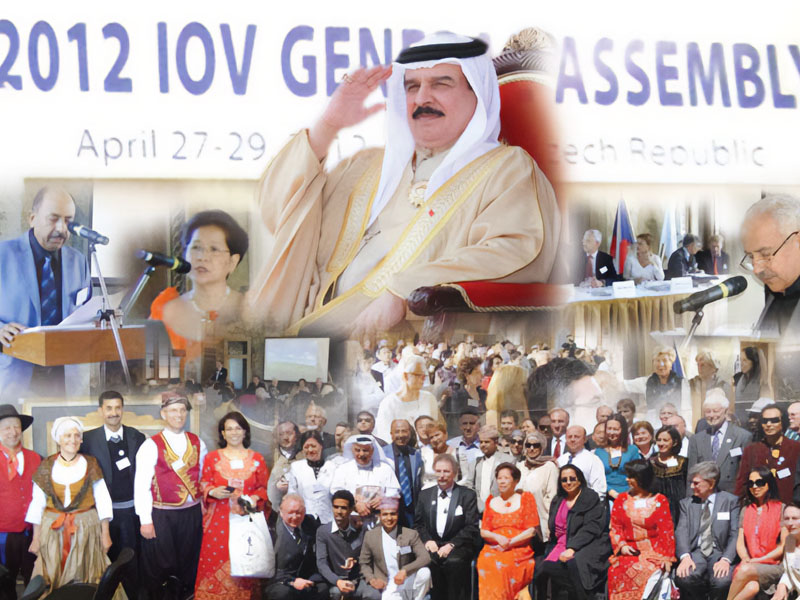A New Global Cultural Achievement Dedicated to Bahrain and its People
Issue 18

For centuries, Bahrain has been able, through its location between the East and the West and its cultural proximity to India, Africa and Persia, to act as a meeting point for several forms of arts, customs and traditions. The values of tolerance and acceptance of the other found in the Arab Bahraini well established national culture have helped in accepting migrants and their values. Bahrainis have interacted with nations confidently, being able to adopt their various trends of heritage and culture. For this reason, Bahrain has earned a global reputation as a place of different races and ethnicities that greatly respect beliefs and ideologies. Relying on these facts, and at the pinnacle of its boom in folk arts in the middle of the nineteenth century, Bahrain has always been a safe haven for many intellectuals, poets and singers seeking better environment for creativity, and searching for wider horizons to explore various forms of arts.
The multi cultural aspects of Bahrain had to be utilized in studies and researches in international conferences and events to enhance the leading role of Bahrain. Bahrain had a considerable achievement through the participation in the International Organization of Folk Art (IOV); it had a vital contribution to its establishment, and has been supporting this organization since then.
This successful contribution has placed Bahrain on the centre of the international work of the (IOV) when Bahrain was elected as the venue of the Orgnization>s Presidential Board meeting, which was held at Isa Cultural Centre in December 2008, and was honoured by the presence of His Majesty the King of Bahrain, who had exchanged views and ideas through correspondences with the Orgnization>s President Ms. Carmen Padilla.
The Bahraini Capital, Al Manama, had early been elected in 2007 in Greece as the headquarter of the Orgnization>s Regional Office, a Bahraini Assistant Secretary-General was then appointed to direct its branches in the Middle East and North Africa.
The Bahraini Ministry of Foreign Affairs supported the establishment of the office, and the people of Bahrain succeeded in opening new branches, in addition to managing and organizing the organization’s work in the territory of the Middle East and North Africa efficiently and effectively.
It was no surprise that this office succeeded, in cooperation with the Ministry of Information in Bahrain, to hold and organize the Bahrain International Festival of Folk Arts for the two consecutive editions of 2007 and 2008 with the participation of international teams.
The launch of the Bahrain>s Folk Culture Journal in early 2008 in its 260 pages in Arabic, with abstracts in French and English, was made in collaboration with the International Organization of Folk Art with the assistance of an academic advisory board of experts and university professors from around the world. The success of the journal over four years in spreading and establishing a high reputation among bodies connected to research in the field of folklore has achieved unprecedented turning point throughout the history of the International Organization of Folk Art.
So it was not a surprise, at the Orgnization>s General Assembly, held in Prague, the Czech capital, during the period from 26 to 30 of last April, for Bahrain to win the membership of the Presidential Council of the Organization, after being nominated by the Republic of Austria, and for Ali Abdullah Khalifa to be unanimously elected, by participating countries, as Vice-Chairman.
This World confidence in Bahrain comes to lit a new candle in the prosperous era of His Majesty King Hamad bin Isa Al Khalifa of Bahrain, the supporter, sponsor and director of the cultural movement, which makes its way quietly and patiently to achieve success after success, coinciding with the celebration of Manama as the capital of Arab culture. This also emphasizes the bedrock of the Bahraini national culture and its vital role through the ages, highlighting the fact that the innovators and people of intellect are the producers of culture, as they pass it from generation to generation. Congratulations to Bahrain and its people for this new global achievement.
Editorial Board


































































